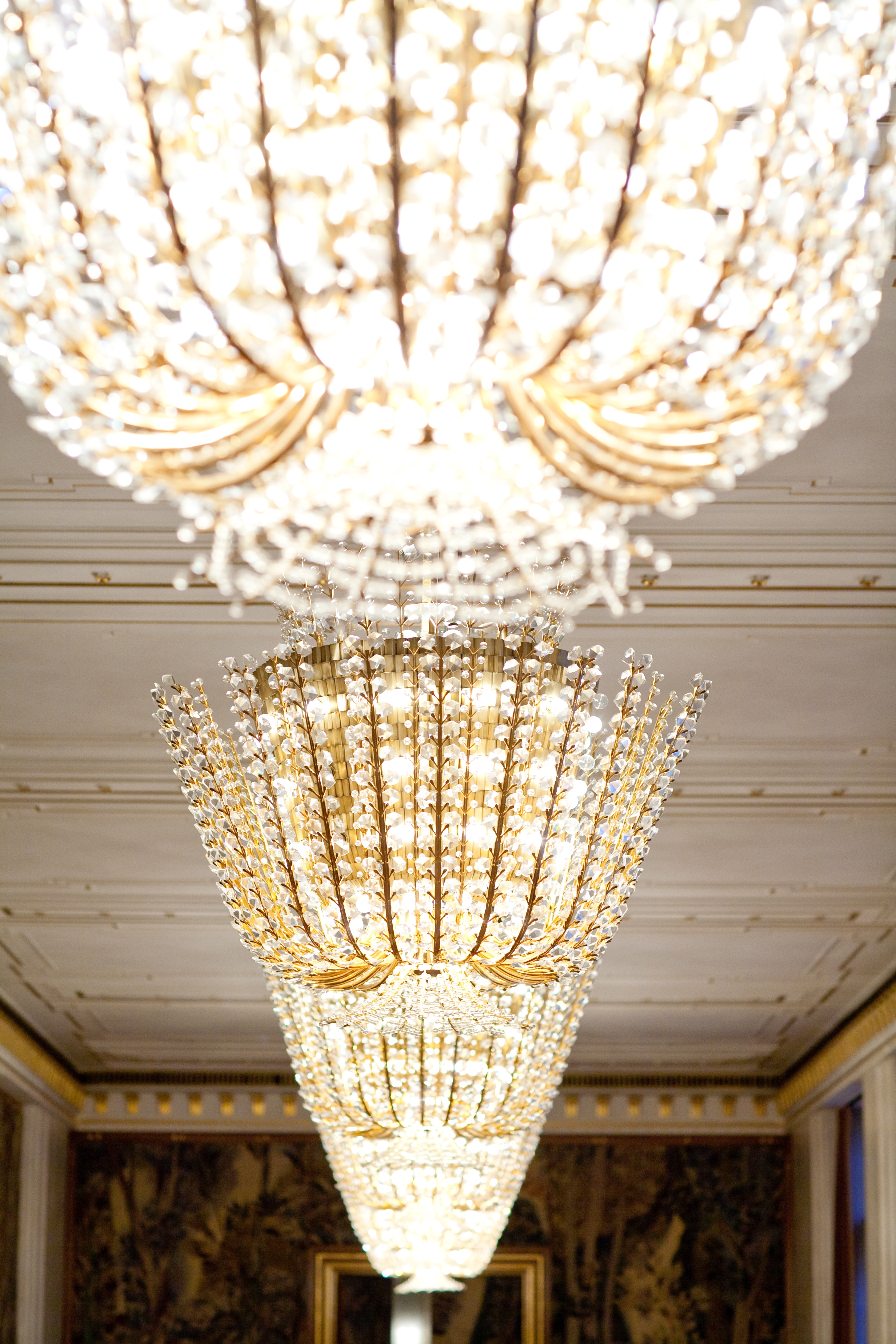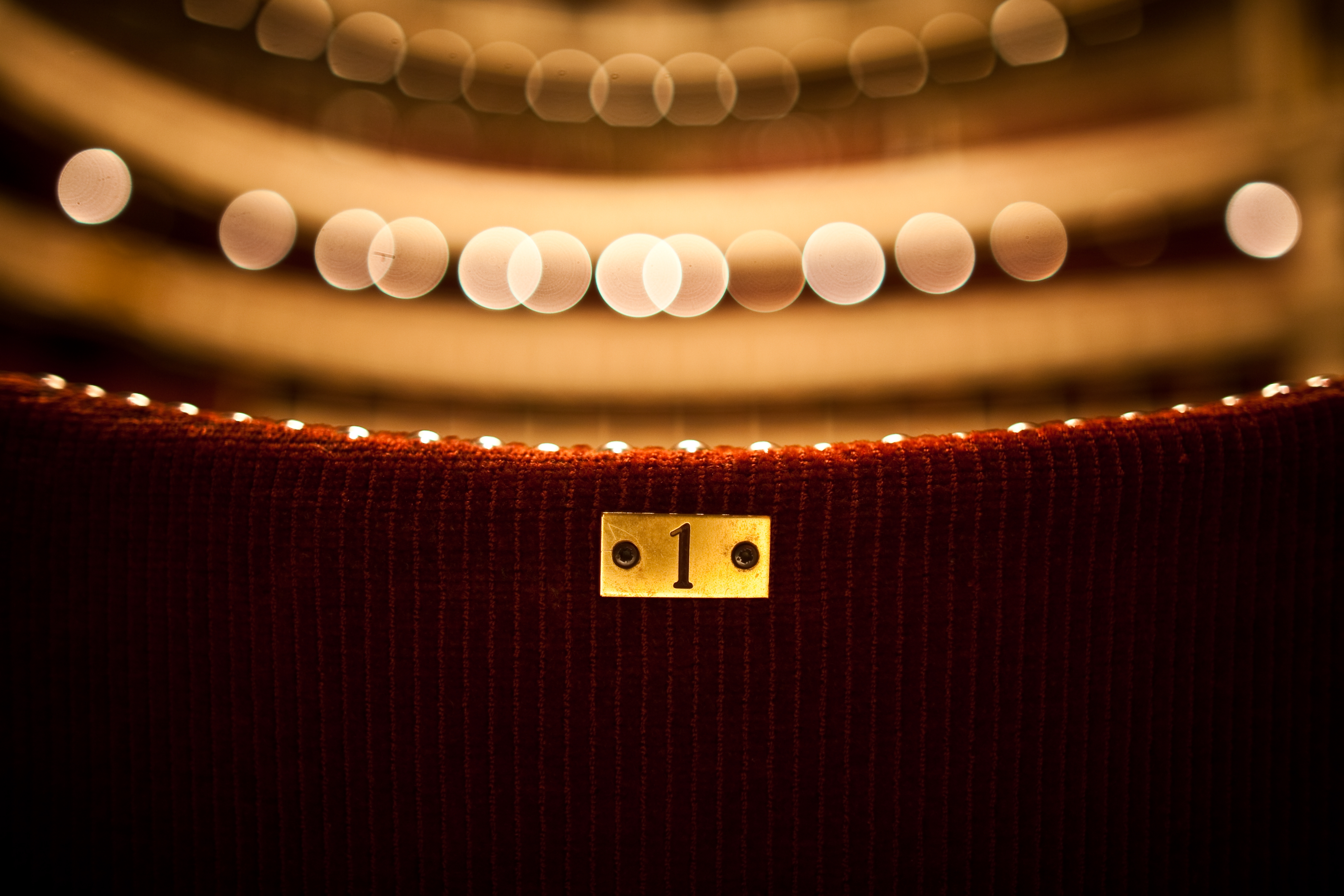
Short Summary
France, around the time of the French Revolution: the revolutionary-minded poet Andrea Chénier falls into the clutches of Robespierre's reign of terror and is suspected of being a counter-revolutionary.
His fate is closely intertwined with that of the young noblewoman Maddalena Coigny and that of the former valet de chambre Gérard: both men love Maddalena, she in turn loves Chénier. In the end, however, death awaits: Andrea Chénier and Maddalena Coigny go to the scaffold together.
Andrea
Chénier
Storyline
During the last days of the Ancien Régime, the Countess of Coigny's castle in Paris is being prepared for a festive soirée.
The valet de chambre Carlo Gérard, son of the old castle gardener, gives free rein to his hatred of aristocratic society and its superficial world. The Countess of Coigny appears with her daughter Maddalena, with whom Gérard is in hopeless love, and with Bersi, her confidante and chambermaid. The Countess rebukes her daughter for not having dressed for the festivities. In her conversation with Bersi, however, Maddalena explains how annoying she finds today's fashion, including the foolish behavior of the aristocracy. The guests arrive.

The party begins - a rococo-style conversation at which Pietro Fléville, a vain novelist, and the abbate have the big talk. The conversation revolves around the revolution that is supposed to be imminent. But no one takes the matter seriously. Fléville introduces the young poet Andrea Chénier. The countess invites him to read from his poems. But Chénier refuses. Maddalena bets with her friends that she will succeed in changing Andrea's mind. She provokes him by expecting him to sing about love. But in response, Chénier praises the fatherland and the new principles of freedom and humanity in a sharp, political indictment.

The scandal is there, society is outraged. Chénier only finds approval from Maddalena and Gérard. Spurred on by Andrea's courageous song, Gérard leads a crowd of starving peasants lamenting their fate into the salon. Called to account by the countess, he gets carried away and shocks her with revolutionary slogans. He takes the side of the oppressed and is dismissed by the countess, whom he accuses of throwing parties at the expense of the poor. But the party goes on..
The revolution has degenerated into Robespierre's reign of terror. People tremble before the revolutionary tribunal, the death sentences and the guillotine.
Gérard has risen to become a deputy in the Chamber. Andrea, who had previously praised the ideals of the revolution, is now suspected of counter-revolutionary activities and spied on by the police. Maddalena has found shelter with Bersi. She is also one of the persecuted. But Gérard still loves Maddalena.
In front of the Café Hottot near the Seine, an incroyable, who is looking for the missing Maddalena as an informer, tries to provoke Bersi. She has become a streetwalker in order to feed her former mistress. Half serious, half cynical, Bersi pretends to be a true daughter of the revolution and to feel at home in this milieu. But the royalist becomes suspicious when he notices that Bersi and Chénier are exchanging glances. Chénier is joined by his friend Roucher, who advises him to flee the capital as quickly as possible, as he is already on the public prosecutor's list. But Andrea, confused by spirited, anonymous letters from a mysterious lady, which for the first time awaken a feeling of real love in him, refuses.

Roucher tries to convince him that the letters could only have come from a merveilleuse, one of the streetwalkers of the time, and slips him a passport. Chénier, however, first wants to find the writer of the letters. Bersi also asks him to wait for a lady who is in great danger. The Incroyable, who is also instructed by Gérard to look for Maddalena, makes the connection: Chénier - suspected of being a counter-revolutionary - receives messages from Bersi, Maddalena's confidante who has now become a streetwalker - a noblewoman. So Andrea and Maddalena conspire.

Andrea recognizes the lady who announced Bersi as Maddalena, who also reveals herself to be the mysterious letter writer. She reports that Bersi is keeping her hidden, but that she has been tracked down. Now she is seeking protection from Andrea, although she knows that he is also in danger. They both confess their love for each other. They swear to be faithful to the death and decide to flee.

Gérard appears, summoned by the Incroyable, who has betrayed them. Roucher escapes with Maddalena. Chénier draws his sword, hidden in a stick, and wounds Gérard. The Incroyable wants to pursue the fugitives, but Roucher threatens him with a pistol. Gérard is wounded, but has not completely forgotten his earlier sympathy for Andrea and, above all, his unhappy love for Maddalena. He helps him to escape. But Chénier's name is already on the public prosecutor Fouquier-Tinville's list.
In the Welfare Committee, Mathieu incites the people against the enemies of the revolution, because the fatherland is in danger.
Gérard, recovered from his wound, calls for an emergency sacrifice in a fiery speech: All of Europe stands against the French. The women sacrifice their jewelry, the fathers their wages, the mothers their sons. The old, blind Madelon is led in by her grandson. Her son Roger, she tells us, was killed in the storming of the Bastille, his eldest son is buried near Valmy, and she is now sacrificing the boy who is leading her for the fatherland.

While the boisterous crowd dances the Carmagnole, the Incroyable Gérard reports Chénier's arrest to a friend. He says that there is no need to worry about Maddalena now. She will soon arrive on her own in the hope of rescuing her lover. He asks Gérard to formulate the complaint, as Fouquier-Tinville is waiting for it. As Gérard is still hesitating, the Incroyable urges him to sign. In despair, Gérard realizes that the ideals of the revolution for which he has fought, the noble intention to help the poor and oppressed, have turned into meanness, lies and hatred. He feels remorse, especially as he himself - plagued by his unhappy love - has become a traitor and slanderer.

As the Incroyable had predicted, Maddalena appears. Gérard confesses how much he has loved her since the time they played together in the castle garden as children. But the hopelessness of being able to conquer her has made him a traitor to Chénier. She rejects his renewed insistence. She would rather wish for death. But then - in desperate memory of the mother who was murdered, of the castle reduced to rubble, of Bersi who sold herself for her, she offers Gérard her body herself with the intention of saving Andrea. Gérard is deeply moved by this. He agrees to try to save Chénier.
The people enjoy the spectacle of a summary trial of alleged traitors to the revolution. They are all executed without being able to defend themselves. Only Chénier is given the opportunity to have his last word and he defends himself manfully. Gérard confesses his treason against him and wants to withdraw the charges. But the crowd demands his death. Andrea Chénier is sentenced to death by guillotine.
In the courtyard of St. Lazare Prison, before the Revolution of the Convent of St. Vincent de Paul, Chénier writes down his last poem.
He recites the song to his friend Roucher, a prisoner like himself - a hymn to poetry, in whose arms he will die.
Led in by the jailer, Maddalena and Gérard enter the prison. Gérard has obtained permission for Maddalena to have a final conversation with Andrea.

In exchange for jewels and money, she manages to be exchanged with Idia Legray, a prisoner condemned to death, in order to die at Chénier's side. Gérard, whose tragic love led him to agree to this disastrous solution, now dares to make one last attempt to save her - the last: Robespierre must help!
Maddalena and Chénier meet for their last conversation. It is not a farewell, for both die in the certainty that they will be united forever in a new life after death. The closer calls out the two names: Andrea Chénier and Idia Legray. Gérard's last attempt to save himself was in vain.
The production is by Otto Schenk, who shaped the opera house on the Ring for many years and was awarded the highest honor of the Vienna State Opera, honorary membership. Sometimes criticized as "too modern" in his time, his craftsmanship was always pointed out, especially with regard to the drawing of characters. In his work, it was always important to Schenk to develop individual personalities for all roles, including the characters portrayed by choristers and extras, and to make them "human" on stage - in the best sense of the word. In the case of the Andrea Chénier premiere in 1981, the Süddeutsche Zeitung described it as follows: "His love was for the mass scenes, in which each chorister performed his own little play with great attention to detail."
"As a musician, Giordano stands between the times. His rise coincided with that of Mascagni and Leoncavallo, but he was more closely related to Cilèa, Franchetti and Smareglia, who wanted to transfer Wagnerian accompagnato to Italian opera. Singable melodies envelop the four acts, warmly underpinned by a massive harmony and a compact orchestra. But he is also no stranger to Puccini's slender swordplay. He also knows the provocative power of the pause, the brutal accent, the unexpected attack of a single instrumental effect." (Elsa Bienenfeld, 1926)
Gustav Mahler planned the Viennese premiere of Andrea Chénier in the Haus am Ring during his time as director, which was so important for the opera house - he had already successfully staged the opera in Hamburg. However, due to cost-cutting measures, the Obersthofmeisteramt refused permission for the performance. The Viennese premiere therefore finally took place in 1909 at the "Kaiser Jubiläums-Stadttheater" (today's Vienna Volksoper). The first state opera performance did not take place until 1926.









